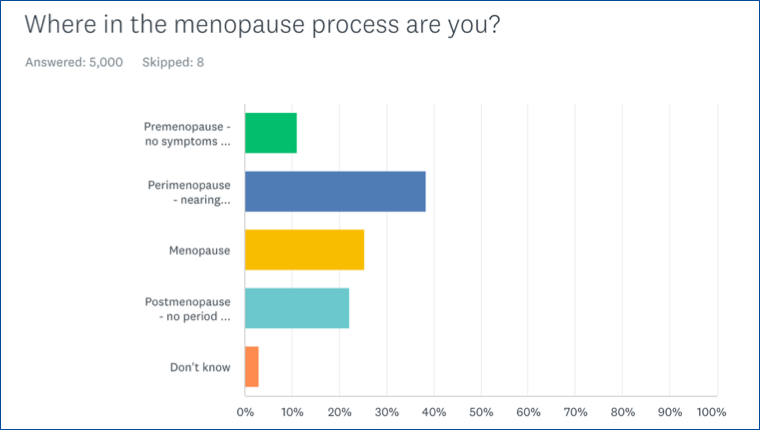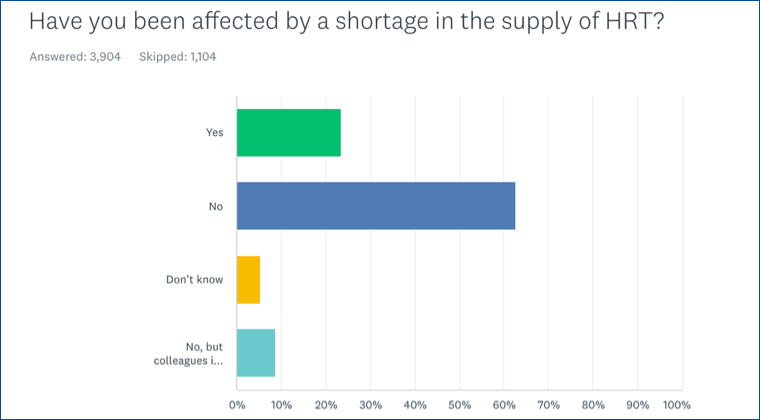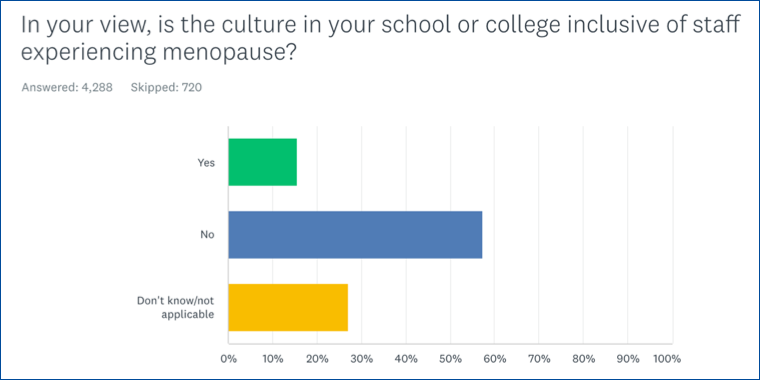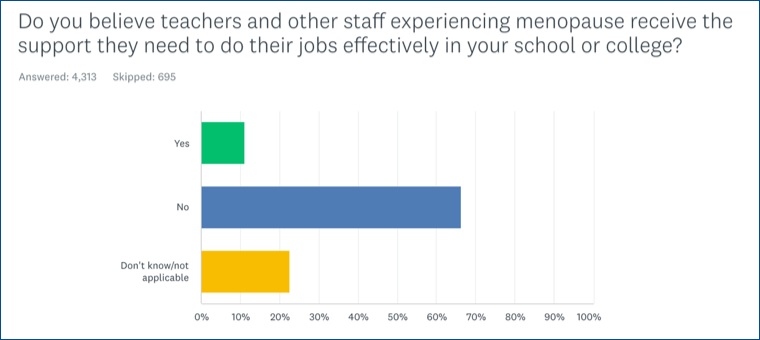As a profession, teaching is predominately female, which makes addressing the menopause a high priority in all workplaces and within the Union.
In June 2022, the NASUWT launched our menopause survey to learn from direct from our members’ experiences.
Five thousand teachers from every region and nation of the UK took part.
Key findings
Eighty-five per cent of those who responded were either perimenopausal, menopausal or had already gone through the menopause.

Forty-eight per cent were already taking hormone replacement therapy (HRT) and almost seven per cent told us they felt they needed it but were struggling to access the medication.
Crucially, almost a third (32%) of those who responded told us that either they or their colleagues had been affected by a shortage in the supply of HRT.

Menopause in the workplace
The main workplace impacts of the shortage in HRT reported were:
-
mental health and wellbeing affected;
-
feeling unwell in the workplace;
-
ability to do the job affected; and
-
attendance being affected.
Yet, worryingly, the majority of respondents felt unsupported by their employer and within their workplace.


In your words
|
|
|
|
|
|
|
|
|
|
|
|
|
|
|
Next steps for the NASUWT
-
Lobby government education departments for mandatory menopause policies in schools and colleges.
-
Further promote NASUWT policy checklists and celebrate schools and colleges that adopt them successfully on behalf of NASUWT members.
-
Promote examples of good practice.
-
Promote NASUWT menopause training courses, including to school leaders.
-
Lobby government health and social care departments for improved access to medical appointments for teachers.
